
Scan for local wireless network with Acrylic WiFi Free
If your Wi-Fi isn’t performing well then using a scanner to check for competing networks can often tell you more.
Unsure where to begin? Acrylic WiFi Free claims to be "the most advanced WLAN Scanner", which sounds encouraging. It’s free for personal use and runs on Windows 7, 8, 8.1 and 10, so we grabbed a copy to take a closer look.
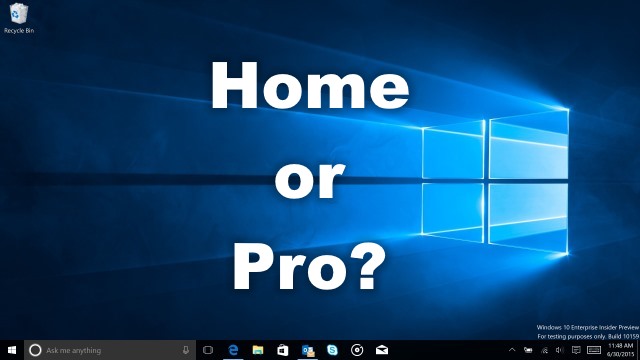
Which version of Windows 10 is right for you?
It's not long since Microsoft revealed the various editions of Windows 10 that will be available. We're now in the launch month and the preview builds are rolling out thick and fast to Windows Insiders. But when the big day rolls out, which version should you opt for?
If you're upgrading from Windows 7 or Windows 8, it's a fairly simple process that can be taken care of by Windows Update. For those who have decided to make the upgrade, Microsoft will automatically migrate you to the equivalent version of Windows 10. But if you're running the Home version of Windows, what are you missing out on? Is it worth thinking about going Pro? Microsoft has a handy guide to help you decide.
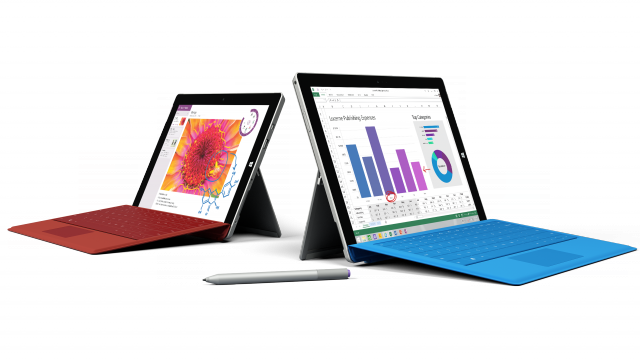
O2 has exclusivity and special offers on Surface 3 4G for UK business customers
In the last couple of weeks there have been two new Surface models announced. Just a couple of days ago we learned of the new, cheaper Core i7 Surface Pro 3, and just before this the traveller-friendly 4G LTE Surface 3 -- still no news of the Surface 4 or Surface Pro 4, sadly.
In the UK, business and enterprise customers will be able to buy their 4G LTE Surface 3 from O2. The company has a three month exclusivity deal with Microsoft that means this is the only place the 10.8 tablet will be available during this period. As well as being the sole source of the device, O2 has a few deals to entice would-be customers into making a purchase.

Windows 7 gains significant usage share ahead of Windows 10 launch
Windows 8.x enjoyed a good month in May. The tiled operating system finally overtook Windows XP for the first time in six months -- its gains coming mostly at the expense of Windows 7. But it was all change again in June according to the latest usage stats from web analytics firm NetMarketShare.
The latest figures show Windows 8.x losing share -- or business as usual you might say -- going from 16.63 percent to 16.02 percent. That’s a drop of 0.61 percentage points. Windows 8.1 actually gained 0.24 percentage points, but Windows 8 lost 0.85 percentage points. Still overall it remains comfortably ahead of XP now, so there's that consolation prize.
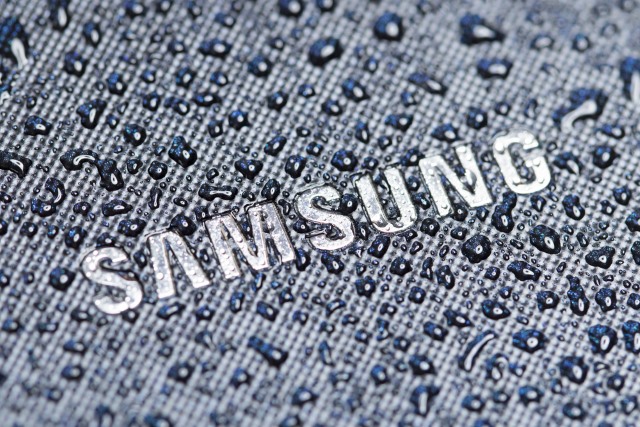
Samsung is disabling Windows Update without users' permission
Windows Update has long been pushed as the way to make sure that Windows is fully patched and secure as possible. It is recommended that it be left in Automatic mode so updates are downloaded as they are released. Samsung, however, has different ideas.
The company has been found disabling Windows Update on a number of the computers it sells, channeling people to use its own SW Update tool instead. Microsoft MVP Patrick Barker noted the activity when he found a program called Disable_Windowsupdate.exe on his computer. The culprit was Samsung's crapware.
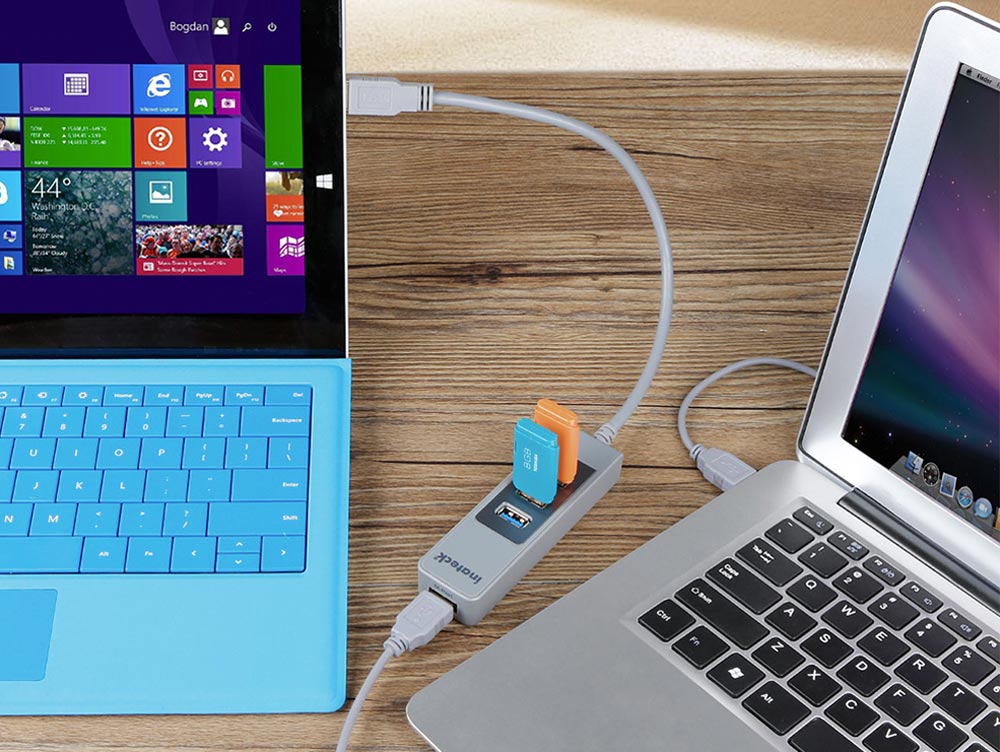
More than just a USB hub -- Inateck HB4009 [Review]
USB hubs are commonplace and, let's be honest, not especially exciting pieces of kit. Inateck’s HB4009 is a three-port USB 3.0 hub, but it also has an extra trick up its sleeve. It has a Magic Port, allowing you to link two systems together for file transfers or establish a client/host link using the USB On-The-Go (OTG) standard.
This makes it a versatile little device as you can link Windows, Mac OS and Android devices to their own kind or to each other. You can also attach another USB device like a flash drive or camera to a system, such as a tablet, that might not otherwise have a suitable port.
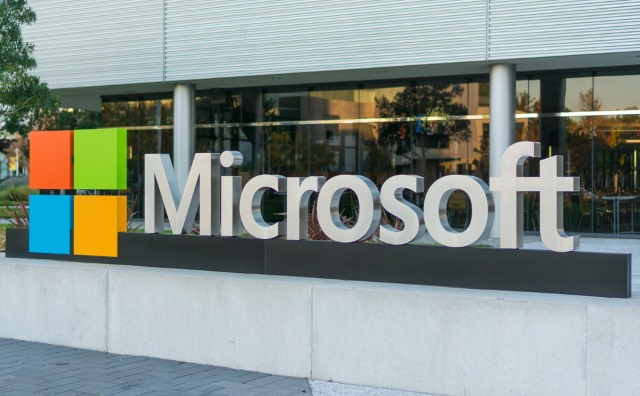
Massive Microsoft shakeup sees Stephen Elop departure
Microsoft is a company in a constant state of evolution, and today this is perfectly demonstrated by a huge shakeup at the top. Satya Nadella wrote to employees to explain a number of changes to the Senior Leadership Team -- including the departure of Stephen Elop.
The former Nokia CEO and Nadella "agreed that now is the right time for him to retire from Microsoft". A question that can be heard echoing through the company is "did he jump, or was he pushed?" Mark Penn is also leaving the company to form a private equity fund. The reorganization additionally sees the company dividing into three distinct teams to "deliver better products and services our customers love at a more rapid pace".

Windows Phone security is top notch, says Kaspersky
There is lots of talk surrounding the level of protection offered by leading mobile operating systems Android and iOS. Whether it is about a new vulnerability, or new security features, it does not take you long to find an authoritative comment assessing their security capabilities.
That is, however, not the case with Windows Phone, which is hardly -- if ever -- given similar levels of attention. It can be argued that this is due to the low popularity of the tiled smartphone operating system, which borders on 3 percent market share, making it a significantly less-attractive target. Nonetheless, there is now an assessment of Windows Phone's security that we can rely on, coming from Eugene Kaspersky.
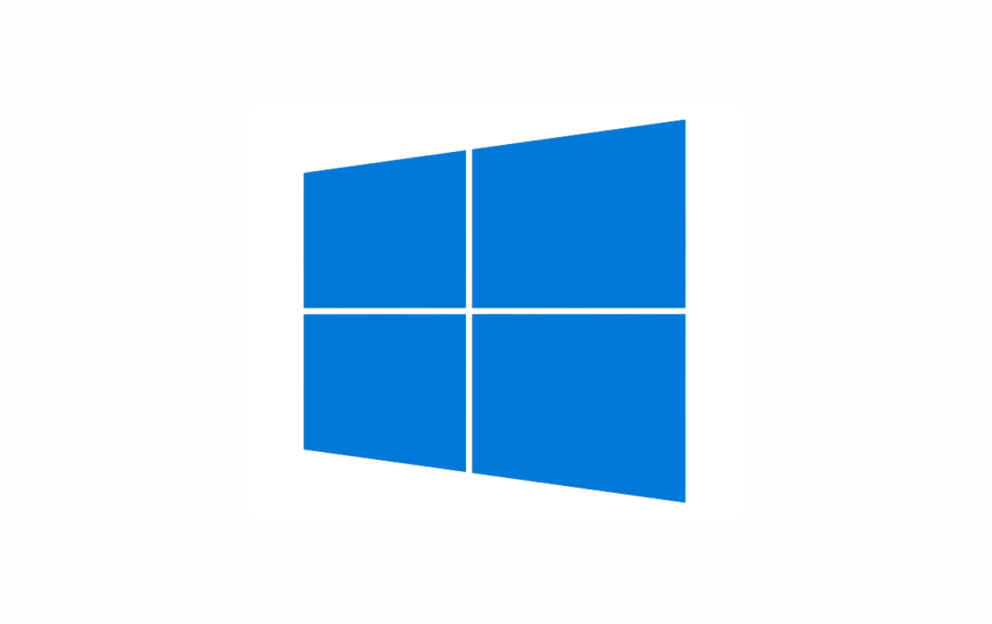
How to get the Windows 10 upgrade notification to appear in Windows 7 or 8.x
If you’re running Windows 7 or 8.x you should by now see a small Windows 10 icon in the system tray. Click this and you can reserve your free Windows 10 upgrade in advance of the operating system’s launch on July 29.
Once you’ve reserved the upgrade, Windows 10 will download as soon as available and you’ll be able to install it at your convenience. However, for some reason this icon isn’t appearing on all systems. It wasn’t on mine for example. If you want to summon the upgrade icon, this is what you’ll need to do.
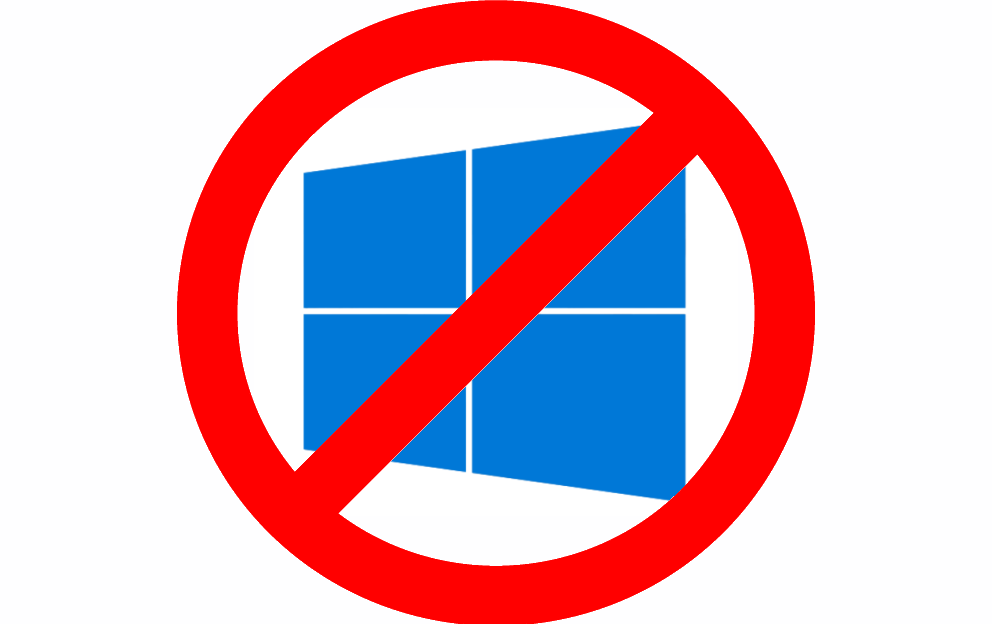
How to remove the Windows 10 upgrade notification from Windows 7 and 8.x
If you’re certain you don’t want to upgrade to Windows 10, or you want to do so at your own pace without being nagged into it, the upgrade notification that appears in Windows 7 and 8.x can be viewed as an unwanted annoyance.
There are plenty of reasons why you might not want to upgrade to Windows 10 as soon as it becomes available -- you might be more than happy with your existing OS, or you may wish to wait until Windows 10 has been out for a while and all of the big issues have been patched. After all, you have a year to upgrade for free. If you want to remove the upgrade notification, there’s a simple tool for the job.
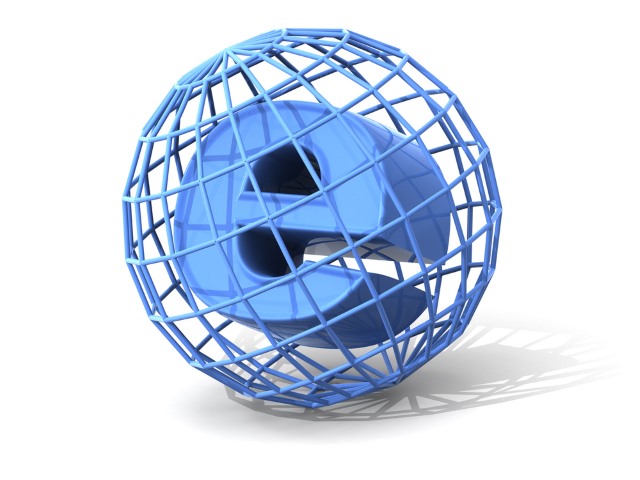
Internet Explorer 11 gains HTTP Strict Transport Security in Windows 7 and 8.1
As the launch of Windows 10 draws ever-nearer, we're hearing more about Microsoft Edge and less about Internet Explorer. Edge (formerly known as Project Spartan) may be the default browser in the upcoming version of Windows, but the browsing stalwart that is IE will live on nonetheless.
Anyone using the Windows 10 preview has had a chance to use the HTTP Strict Transport Security (HSTS) in Microsoft Edge, and today the security feature comes to Internet Explorer 11 in Windows 7 and Windows 8.1. This security protocol protects against man-in-the-middle attacks and is being delivered to users of older versions of Windows through an update in the form of KB 3058515.
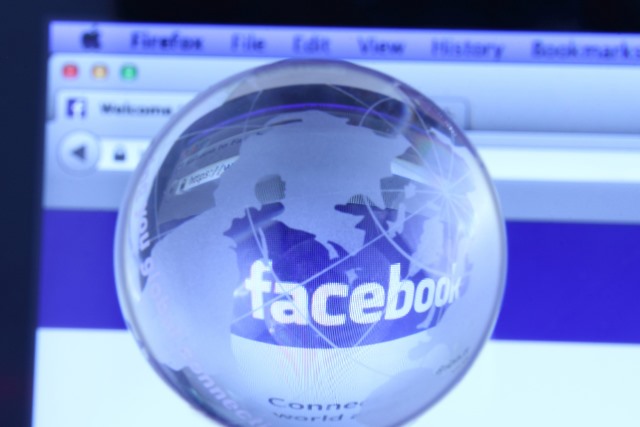
Major Microsoft products lose Facebook integration
Social integration is a key aspect of Microsoft's vision for its most prominent consumer-facing products. For instance, on Outlook.com you can have a Skype conversation, on Skype you can chat with Facebook friends, and on Windows Phone you can see your contacts' social updates, like tweets, in People hub. This is one of my favorite things about the software giant's products. It is also a standout feature that its rivals are not yet offering.
A core component is Facebook integration, which is present in Windows and Windows Phone, as well as Office 365, OneDrive and Outlook.com. But, thanks to an update to Facebook's Graph API, integration with the most-popular social network is going away in all currently-supported products.

What do you like about Windows 10?
Wow. What a wicked week it is for Microsoft platforms. As May closed, Insider Preview Build 10130 dropped, followed by a preorder page for OEM versions. Then came the big reveal just five days ago: Windows 10 will be available on July 29th. System requirements are out now, though. On June 3rd, the company showed off devices designed for the operating system. A day later, Office 2016 Preview updated with new features, many tapping cloud services. Yesterday, Build 10135 release notes leaked.
Fitting with the "beta" in BetaNews, it's time to pose the big question for those of you daring enough to grab Windows 10 now ahead of next's month's big release. Most of the BN writing team runs the operating system. I'm late to the upgrade party but will join the gang later today or tomorrow. Meanwhile, I ask: What do you like about Windows 10? If you must: What don't you like -- and, related, what do you still want?

Microsoft: SSH support coming to Windows
Windows users who want to access another device via SSH (Secure Shell) have to rely on third-party tools to get the job done, as there is no built-in support for it in the popular operating system. Azure CTO Mark Russinovich has revealed that he uses PuTTY for such tasks, which is also the SSH tool of choice for plenty of other folks, myself included.
As such, the fact that SSH support is one of the most popular feature requests that the PowerShell team has received should not surprise any Windows power users. And since Microsoft is actively trying to cater to its users' needs, it just announced that it is currently working on making the much-requested feature a reality.

Windows 8.x finally overtakes Windows XP again
After months of not really doing much, Windows 8.x finally gained a decent amount of usage share in May, according to web analytics firm NetMarketShare.
This gain came at the expense of Windows 7 and Windows XP, which both lost share, resulting in Windows 8.x leapfrogging XP for the first time in six months. The last time the tiled OS was more popular than XP was in December 2014. At the time a run of usage gains lead me to predict it was on course to break the 20 percent barrier. Yeah, talk about being overly optimistic.
